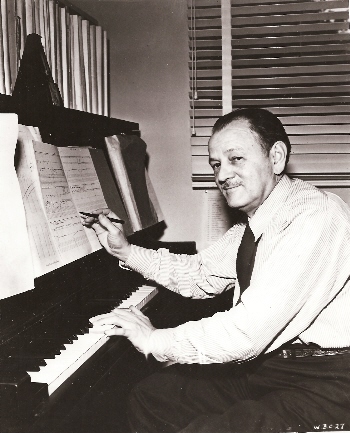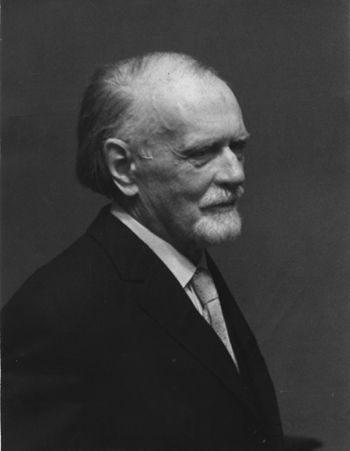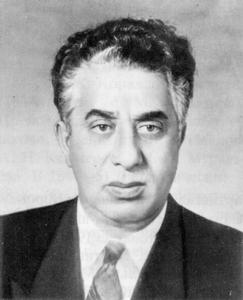The most well-known composers are considered some of the greatest. With so many composers throughout history, it's not surprising for many to slip under the radar, and become unnoticed.
It's a shame, but is inevitable in whatever walk of life is chosen, but they are still as interesting to hear about, if not more so because of the lack of lime-light.
1. Ralph Vaughan Williams
Ralph Vaughan Williams (12 October, 1872 - 26 August, 1958) was an English composer. He was a keen collector of English folk music and song: this activity influenced both his editorial approach to the English Hymnal, and also several of his individual compositions.
He was a composer of opera, symphonies, chamber music, film scores, and choral music.
As a student he studied both the piano and violin, attending the Royal College of Music (RCM).
After serving time as a private in the Royal Army Medical Corps (during the first world war), he was commissioned as a second lieutenant. Exposure to gunfire caused Williams to become severely deaf in his old age.
2. Carl Stalling
Carl W. Stalling (November 10, 1891 - November 29, 1972) was an American composer and arranger of music for animated films.
He is most closely well-known for Looney-Tunes and Merrie Melodies produced by Warner Bros.
He composed frequently, and managed to average a complete score every week, for 22 years (which is 1144 works).
Carl started to learn the piano at the age of six, becoming principle piano accompanist in his hometown's silent movie house, aged 12. He started to conducting in orchestras in his early twenties.
3. Isaac Albéniz
Isaac Manuel Francisco Albéniz y Pascual (29 May, 1860 - 18 May 1909) was a Spanish Catalan pianist and composer, whose works were based upon folk music idioms.
At seven years old, he passed the Paris conservatoire entrance exams, but was declined a position as he was believed to be too young.
In 1883, he met the teacher and composer Felip Pedrell, who inspired him to write Spanish music such as the Chants d'Espagne. In the same year the composer married his student Rosina Jordana. They had three children, Blanca (who died in 1886), Laura (a painter), and Alfonso (who played for Real Madrid in the early 1900s before embarking on a career as a diplomat). Another two of their children died in infancy.
4. Zoltán Kodály
Zoltán Kodály (December 16, 1882 - March 6, 1967) was a Hungarian composer. He is best known internationally as the creator of the Kodály Method.
As a child Kodály learnt to play the violin. Kodály was very interested in the problems of music education, and he wrote a large amount of material on music education methods as well as composing a large amount of music for children.
5. Luigi Boccherini
Luigi Rodolfo Boccherini (February 19, 1743 - May 28, 1805) was an Italian classical composer and cellist.
Boccherini most well known for one particular minuet from his String Quintet in E, Op. 11, No. 5 (G 275), and the Cello Concerto in B flat major (G 482).
Being born into a musical family, Boccherini at a young age was sent to study music in Rome.
He was later employed by the younger brother of King Charles III, and flourished. After playing for the royal family for a while, the king disapproved in one of the passages in his new trio, and ordered it to be altered. Instead Boccherini doubled the passage, he was immediately dismissed.
6. Paul Hindemith
Paul Hindemith (16 November, 1895 - 28 December 1963) was a German composer, violinist, violist, music theorist, teacher, and conductor. He was born in Hanau and was introduced to the violin at an early age.
He became deputy leader of the Frankfurt Opera Orchestra in 1914, and was promoted to leader in 1917.
In 1922, some of his pieces were played in the International Society for Contemporary Music festival at Salzburg, which first brought him to the attention of an international audience.
7. Gioachino Rossini
Gioachino Antonio Rossini (29 February, 1792 - 13 November, 1868) was an Italian composer, writing operas as well as sacred music, chamber music, songs, and some instrumental and piano pieces.
He was nicknamed "The Italian Mozart " because of his tendency for inspired, song-like melodies, which are evident throughout his scores.
Before Rossini retired in 1829, he 'was' one of, or the most popular opera writer of all time.
According to Herbert Weinstock's 1968 biography, Rossini's estate was valued at 2.5 million francs upon his death in 1868, the equivalent of about 1.4 million US dollars.
8. Aram Ilyich Khachaturian
Aram Ilyich Khachaturian (June 6, 1903 - May 1, 1978) was a Soviet Armenian composer. His works was often influenced by Russian classical music and Armenian folk music.
He is most famous for the Adagio of Spartacus and Phrygia from his ballet Spartacus, and for the "Sabre Dance" from his ballet Gayane and the adagio from the same ballet.
The composer joined the Communist Party of the Soviet Union in 1943. In1948, he temporarily fell from official favour. It was the Symphonic Poem, later titled the Third Symphony, that officially earned Khachaturian the hatred of the Party.
9. Antonio Caldara
Antonio Caldara (1670 - 28 December 1736) was an Italian Baroque composer. He was a son of a violinist, however, Caldara learnt many different instruments.
In 1699 he moved to Mantua, where he became maestro di cappella to the inept Charles IV, Duke of Mantua, but later moved from Mantua in 1707, after the French were expelled from Italy.
Caldara is best known as a composer of operas, cantatas and oratorios. Several of his works have libretti by Metastasio.
10. Johann Christian Bach
Johann Christian Bach (September 5, 1735 – January 1, 1782) was a composer of the Classical era, the eleventh and youngest son of Johann Sebastian Bach.
He is sometimes referred to as 'the London Bach' or 'the English Bach', due to his time spent living in the British capital, where he came to be known as John Bach.
After his father's death, when Johann Christian was 15, he worked with his second-oldest half brother Carl Philipp Emanuel Bach, who was twenty-one years his senior and considered at the time to be the most musically gifted of Bach's sons.
He composed cantatas, chamber music, keyboard and orchestral works, operas and symphonies, and has been noted to have influenced the concerto style of Mozart.
I don't claim ownership or credit for the pictures present, all credit is reserved for the original owners. No copyright intended, if you have an issue with a picture that is present, then please contact me.










Tidak ada komentar:
Posting Komentar